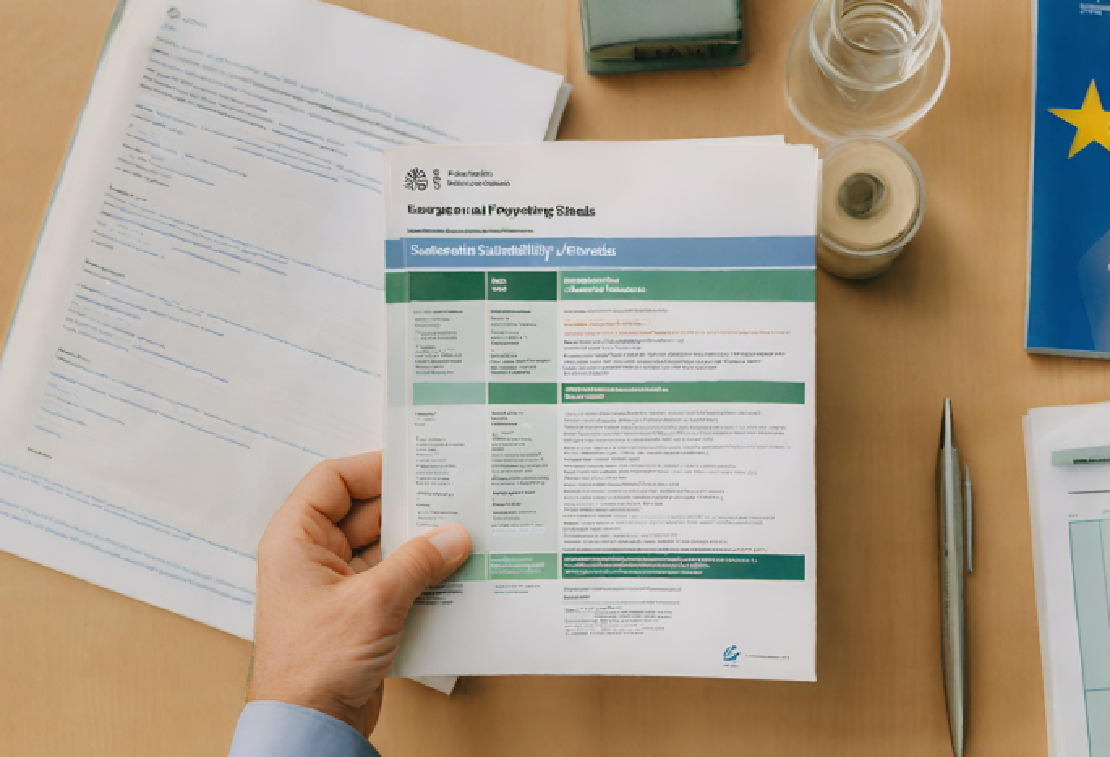
Circular Manufacturing: A Sustainable Path to the Future
Circular manufacturing or circular economy is defined as a production and consumption model whereby …

In an era where sustainability has become a pressing global concern, the European Union (EU) has taken a momentous step towards promoting transparency, accountability, and environmental stewardship. The Commission adopted the European Sustainability Reporting Standards (ESRS) for use by all companies subject to the Corporate Sustainability Reporting Directive (CSRD). The introduction of the European Sustainability Reporting Standards (ESRS) marks a pivotal moment in shaping the future of corporate reporting and sustainability practices within the EU. In this article, we delve into the significance of ESRS, its impact on businesses, and how it sets the stage for a greener and more sustainable future.
The aim of the ESRS is to ensure that in-scope companies report comparable, relevant, and reliable sustainability information – while simultaneously making it crystal clear what they are expected to report on. The standards were developed by the European Financial Reporting Advisory Group (EFRAG). The ESRS are based on already existing European policies and international standards, such as the SFDR, the GRI, to avoid multiple reporting requirements. This means that the threshold to align to the ESRS will be lower for companies that already have standardized their corporate sustainability and ESG reporting according to these frameworks.
The existing landscape of sustainability reporting is fragmented, with different frameworks and guidelines followed by various companies. This lack of consistency in reporting makes it challenging for stakeholders to compare and evaluate sustainability performance accurately. The ESRS bridges this gap by establishing a unified set of reporting standards that promote transparency, comparability, and reliability.
The European Sustainability Reporting Standards build upon existing frameworks, such as the Global Reporting Initiative (GRI) and the Sustainability Accounting Standards Board (SASB). However, ESRS takes it a step further by streamlining and harmonizing reporting requirements across the EU. Some key features of the ESRS include:
Implementing ESRS in business brings numerous advantages, some of which are:
Adopting the European Sustainability Reporting Standards may pose challenges for some organizations, particularly smaller enterprises (SMEs) with limited resources. However, the long-term benefits outweigh the initial hurdles. Every business can navigate the implementation process by:
The European Sustainability Reporting Standards presents a new era of standardized sustainability reporting in the European Union. By embracing ESRS, businesses can unlock so many benefits, ranging from enhanced reputation and stakeholder trust to improved risk management and access to capital. As sustainability becomes an integral part of corporate DNA, ESRS sets the stage for a greener, more sustainable future, where businesses prioritize people, planet, and prosperity according to the green deal agenda. Let us embrace this opportunity to drive positive change and build a better world for generations to come.
Related Searches

Circular manufacturing or circular economy is defined as a production and consumption model whereby …

In our quest for sustainable development, it is crucial to understand the environmental impacts of products …

With the rising concerns in environmental sustainability, procurement practices are very crucial in driving …